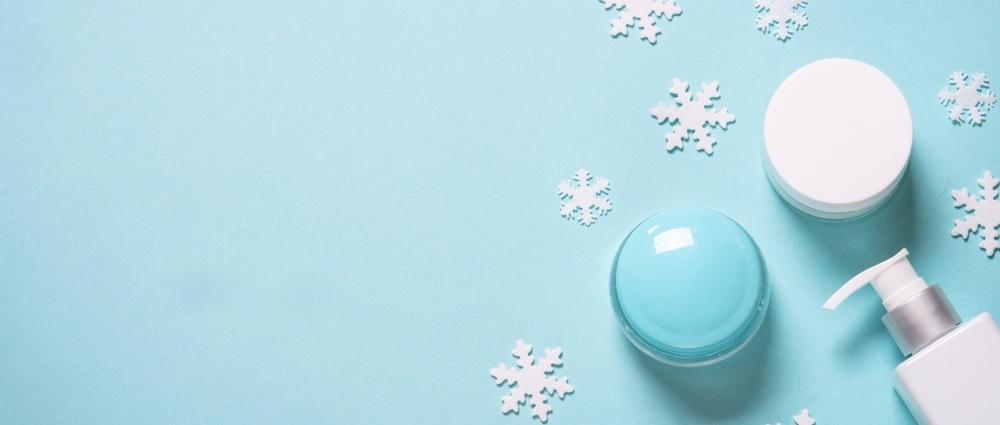
Schutz der Haut vor schädlicher Umweltverschmutzung
Begutachtet von Dr. Krishna Vakharia, MRCGPVerfasst von Amberley DavisUrsprünglich veröffentlicht 7 Jul 2024
Erfüllt die Anforderungen des Patienten redaktionelle Richtlinien
- HerunterladenHerunterladen
- Teilen Sie
- Sprache
- Diskussion
An heißen Sommertagen muss man nicht nur an Sonnencreme denken, sondern auch an die Luftverschmutzung, die durch die Stagnation besonders hoch sein kann. Dies kann bestehende Hautprobleme verschlimmern und die Hautalterung beschleunigen. Eine Reinigungsroutine mit den richtigen Inhaltsstoffen kann Ihnen jedoch helfen. Erfahren Sie hier, wie Sie sich schützen können.
In diesem Artikel:
Air pollution is the mostly invisible threat that tends to reach its peak in cities during summer. It refers to all the particles or gases that are released into the air by human activity, including:
Exhaust fumes from cars.
Fumes released from factories.
Aerosole.
Lesen Sie unten weiter
Can air pollution affect skin?
Polluted air can get into your lungs, causing damage and triggering asthma. Your external appearance can also suffer. Although less serious than the health effects of inhaling toxic particles, your skin can become damaged and aged.
Dr Sophie Momen, skin specialist at the Cadogan Clinic, explains: "Some particles in pollution can pass through your skin and induce the formation of reactive oxygen species (ROS). Your body has various antioxidant mechanisms, which essentially mop up these ROS.
"However, if there is too much ROS and not enough antioxidants, then something called oxidative stress occurs. Oxidative stress affects the functioning of cells, and, in the skin, it leads to a damaged skin barrier, inflammation and ageing - fine lines, wrinkles, and pigmentation."
Studies have shown that long-term exposure to air pollutants, such as ozone, also depletes the skin of the health-giving antioxidants, vitamins C and E1. These support things like collagen production, wound healing, and recovery from UV (ultraviolet) damage after sun exposure.
This kind of damage may also cause skin conditions, including acne, eczema and psoriasis2. These problems come with their own set of symptoms that can affect your quality of life, causing soreness, pain, and low self-esteem in many cases.
Does SPF protect against air pollution?
Dr Momen says: "If your SPF sunscreen contains antioxidants - such as green tea, vitamin E, or vitamin C - then it may help mop up ROS to reduce harmful oxidative stress."
However, there's a need for more studies in this area. The skin specialist also adds that the filters in general SPF sunscreens that protect against UV radiation in sunlight will not protect against ROS produced from pollution.
Does make up protect skin from air pollution?
The same rule applies to your make up. Only products containing antioxidants that promote healthy skin could be considered potentially helpful and protective. No matter how much you pay, or how thickly you spread it on your face, air pollutant particles that are small enough can pass through your make up and into your skin.
How to protect your skin from air pollution
Anti-pollution skincare is a popular buzzword in the beauty industry. Despite marketing claims, there's not a lot of evidence that clearly shows antioxidant–containing moisturisers and other lotions can reduce the effects of pollution.
Nevertheless, a healthy skincare routine is proven to help your skin do its job to the best of its ability - to heal wounds and keep out harmful toxins, all while boosting its appearance.
Here's a step-by-step skincare routine for healthy skin:
Gently cleanse every day - a gentle cleanser helps to remove dirt, bacteria, oil and other pollutants that build up throughout the day. Don’t use soap-based products, as these can damage the skin barrier.
Moisturise every day - this prevents dryness, which can lead to breakage, and supports a strong skin barrier to keep out harmful substances.
Use sunscreen every day - UV damage from the sun accelerates cell damage and ageing. Choosing one that contains antioxidants may also help protect against pollution damage.
Exfoliate with glycolic acid a few times a week - glycolic acid is a gentle exfoliant that helps to penetrate and unclog blocked pores caused from pollution. Use three times a week until your skin becomes accustomed enough to use daily.
As part of this routine, you may wish to incorporate serums or moisturisers that contain ingredients that show promise for their anti-pollution properties. Even with more studies needed in this area, the following also supply other healthy skin benefits.
Vitamin C - an antioxidant that minimises cell damage and protects the skin barrier against pollutants.
Retinol (vitamin A) - another antioxidant that helps reduce cell damage caused by harmful environmental factors, like pollution.
Plant oils - show promise for protection against air pollutants. For example, jojoba, sesame, carrot seed or Indian sandalwood oil3.
Plant extracts fermented with probiotic cultures - have protective antioxidant and anti-inflammatory properties. Examples include coconut, chili and pumpkin fermented in extracts rich in citric, lactic and glycolic acid 3.
Weitere Lektüre
Patientenauswahl für Hautpflege

Gesundheit von Haut, Nägeln und Haaren
Wie man die Haut im Winter pflegt
For most of us in the northern hemisphere, the cold of winter is well and truly upon us, and unless you're going to where the sun is shining, it will be a few months before you feel the warm rays on your skin again. But winter can wreak havoc with your skin, leading to itching, soreness, and even infections. So there's even more reason than in summer to give your skin some regular tender loving care.
von Lynn Stephen

Gesundheit von Haut, Nägeln und Haaren
Verschlimmert Stress Hautprobleme?
Stress und mangelndes Selbstvertrauen gehören zu den verheerenden Folgen von schweren Hautkrankheiten. Aber kann Stress auch eine Ursache sein, die das Problem überhaupt erst auslöst?
von Léa Surugue
Lesen Sie unten weiter
Artikel Geschichte
Die Informationen auf dieser Seite wurden von qualifizierten Klinikern geprüft.
Nächste Überprüfung fällig: 7 Juli 2027
7 Juli 2024 | Ursprünglich veröffentlicht
Verfasst von:
Amberley DavisPeer-Review durch
Dr. Krishna Vakharia, MRCGP

Fragen, teilen, verbinden.
Stöbern Sie in Diskussionen, stellen Sie Fragen, und tauschen Sie Erfahrungen zu Hunderten von Gesundheitsthemen aus.

Fühlen Sie sich unwohl?
Beurteilen Sie Ihre Symptome online und kostenlos
Melden Sie sich für den Patienten-Newsletter an
Ihre wöchentliche Dosis klarer, vertrauenswürdiger Gesundheitsratschläge – geschrieben, damit Sie sich informiert, sicher und unter Kontrolle fühlen.
Mit Ihrer Anmeldung akzeptieren Sie unsere Datenschutzerklärung. Sie können sich jederzeit abmelden. Wir verkaufen Ihre Daten niemals weiter.